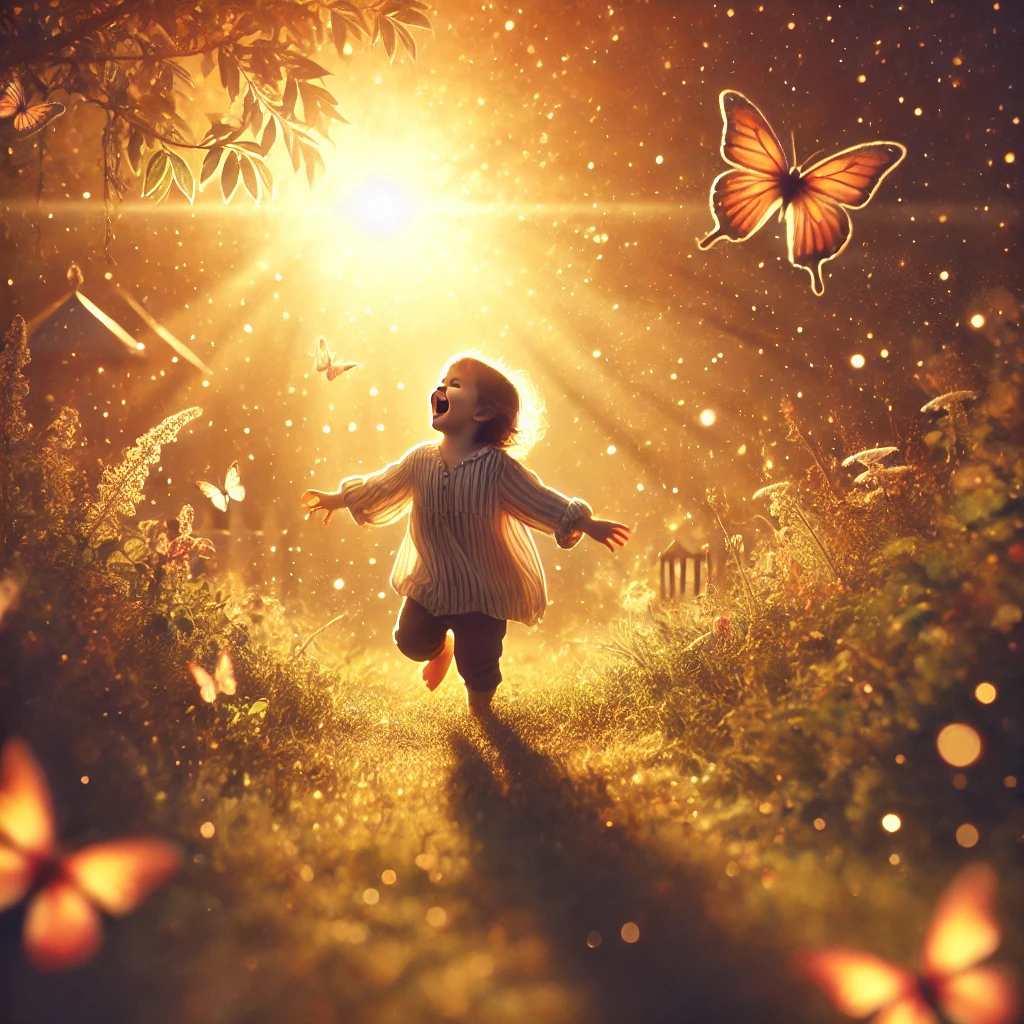Why Are We Here?
Seriously—what is the purpose of life? Are we just here to go to school, get a job, pay bills, and hopefully have a little fun along the way before we die?
You know who rarely questions their purpose? Young children.
As they run across playgrounds, splash in puddles, and simply exist, I’ve never once heard a child ask, “Why am I here?” or “What is the meaning of life?” And after working closely with young children for over 30 years, I can confidently say—they don’t spend much time worrying about the future or dwelling on the past. They are too busy being present. They live without the burden of what they should be doing because, at that stage, no one has told them otherwise. Yet.
The Programming Begins Early
What do I mean by that? Our conditioning starts young—unless, of course, you were raised by those rare, enlightened parents. Think about it: Where did you learn the so-called “rules” of the world? Someone had to teach you. And where did they learn them? Is there some universal guidebook on how to exist?
(I can already hear the argument about the Bible being that guidebook.)
Don’t get me wrong—the Bible is a tremendous resource for living a meaningful life. But it’s not infallible. It’s subject to interpretation, shaped by human perspective. So when we find ourselves lost, unsure of how to be in this world, where do we turn?
For me, the answer has been within.
Through meditation, I’ve gained profound insight. We all have that inner voice—that quiet knowing—that guides us. The challenge is learning to listen and differentiate between the voice of the ego and the voice of infinite source.
Does going within make me omniscient? Does it give me the answers to all of life’s questions? Of course not. But it does give me clarity and direction in my life.
My healing journey has been one of unlearning—of remembering who I truly am, rather than who I became due to the programming I received.
Chop Wood, Carry Water
A student, eager to move beyond the suffering of daily life and reach Nirvana, once asked Buddha what one does after becoming enlightened.
Buddha simply replied, “Chop wood, carry water.”
The same as before.
This response holds several meanings. It suggests that clinging to some grand vision of life beyond enlightenment is just another attachment to be released. It reminds us that even after profound awakening, the essentials of life remain—caring for our bodies, fulfilling responsibilities, and contributing to the well-being of our communities.
Enlightenment doesn’t erase the need to engage in the world. Instead, it shifts how we engage.
Finding Meaning in the Present
Maybe the real purpose of life isn’t something we’re meant to figure out, like solving a math problem. Maybe it’s not about a singular answer but about how we show up—moment by moment.
We spend so much time searching outside ourselves—through careers, relationships, and accomplishments—hoping to stumble upon a grand revelation. But what if the answer has been with us all along? What if it’s as simple as being fully present in the life we already have?
Children don’t ask why they’re here because they don’t need to. They instinctively understand something we spend a lifetime trying to remember: life is meant to be lived, not analyzed to death.
So, rather than chasing some profound external truth, what if we followed their lead? What if we let go of the weight of expectation, the need to “get it right,” and simply allowed ourselves to be?
Because maybe, just maybe, our purpose isn’t something we find—but something we create, moment by moment, in the way we love, in the way we serve, and in the way we allow ourselves to truly be.
